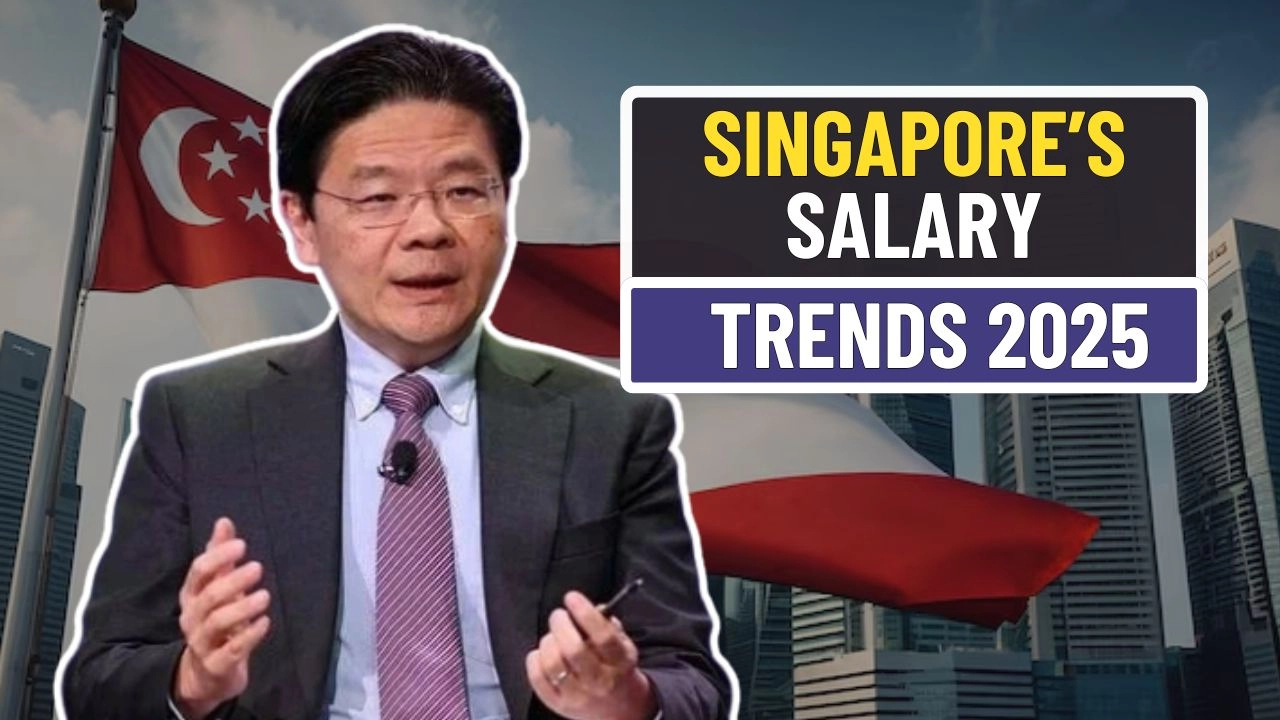As Singapore continues its economic recovery in 2025, employees across the country are turning their attention to wage developments with renewed interest. With an average salary increase forecasted at 4.1%, professionals are encouraged to reassess their value in the workplace and seize the opportunity to negotiate better compensation. Understanding the intricacies of salary calculations, sector-based expectations, and negotiation strategies can make a substantial difference in securing a more prosperous financial future.
Industry Winds Shift as Pay Increases Take Hold
This year marks a pivotal period for pay adjustments, with several key industries showing above-average wage growth. Fields such as real estate, banking, and technology are leading the way, offering salary increases nearing 4.5%. These changes stem from a combination of economic growth, labor shortages in specialized roles, and persistent inflation. Companies are increasingly refining their compensation policies to stay competitive and retain high-performing talent.
Economic Recovery and Workforce Demand Fuel Salary Growth
The anticipated wage surge in 2025 is rooted in broader economic dynamics rather than coincidence. As global markets stabilize, Singapore’s business landscape is regaining momentum. This revival has led to stronger hiring demand, particularly in digital, tech, and financial sectors. Employers are responding by adjusting salaries to reflect market conditions, rising living expenses, and the government’s encouragement of fair employment practices, which all play a role in driving wages upward.
A Closer Look at Industry-Specific Salary Expectations

Though the average increase sits at 4.1%, certain industries are expected to surpass this benchmark. Technology and finance are poised for the highest gains, projected at 4.5%, due to their role in Singapore’s digital transformation. Real estate professionals could see a 4.3% rise, while healthcare and biotech are estimated to increase salaries by 4.2%. Manufacturing, slightly more conservative, may grow by 3.8%, with retail and hospitality sectors experiencing more moderate adjustments around 3.5%. These insights provide a guide for employees assessing their market value.
Understanding the Anatomy of a Paycheck
Salary structures in Singapore are shaped by several elements, starting with base pay, which depends on an employee’s role, experience, and responsibilities. Beyond this, additional allowances such as bonuses, transport stipends, and housing benefits play a crucial part in the total package. With inflation continuing to affect the cost of living, it’s vital for professionals to evaluate whether salary increments are keeping pace with real-world expenses.
Net Salary Insights for Smarter Financial Planning
Knowing your gross income is just the beginning. Understanding net pay what remains after deductions like CPF contributions and income tax is essential for budgeting and financial decision-making. These deductions vary based on your earnings, and leveraging online tools can help estimate your actual take-home pay. A clear picture of your net income empowers you to manage savings, expenses, and investments effectively.
Strengthen Your Case: Salary Negotiation Done Right
In a competitive labor market, negotiating a raise can be daunting, but preparation is key to success. Start by researching salary benchmarks in your industry through platforms like Glassdoor or government wage reports. When approaching your employer, focus on the tangible value you’ve delivered be it successful projects, leadership efforts, or unique skillsets. Requesting a raise during a performance review or after a major achievement often improves the odds of a positive response.
Negotiation Beyond Numbers: Broader Benefits to Consider
Sometimes, monetary raises aren’t possible due to budget constraints. However, this shouldn’t end the conversation. Consider exploring alternatives such as additional leave days, flexible scheduling, or access to training and development programs. These non-monetary perks can offer lasting benefits and improve job satisfaction. Keeping your negotiation respectful and open-ended preserves professional relationships and sets the stage for future opportunities.
Maximizing Earning Potential in a Growing Economy
The projected wage increases for 2025 present a valuable moment for professionals to recalibrate their financial goals. By staying informed on industry trends, understanding how salaries are composed, and approaching negotiations with a clear strategy, workers can take advantage of the evolving economic landscape. Whether advancing within your current role or exploring new opportunities, this year offers the momentum to elevate both your career and your compensation.


